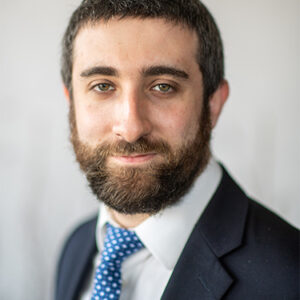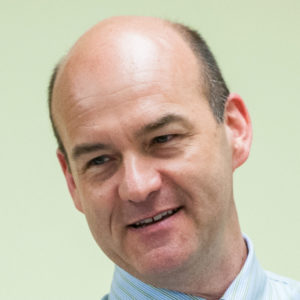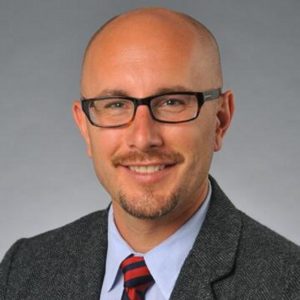Our Constitutional Founding: From Ideas to Institutions
Gain a deeper understanding of our Constitution by studying the political debates surrounding its founding.
July 22–26, 2024
Washington, DC
In the final week of Political Studies, fellows will turn to contemporary issues of domestic policy, with a focus on understanding how ideas influence policy.
One seminar will introduce students to the approaches and ideas of 20th-century conservative social science through four great debates in social policy: family structure, poverty, welfare, and crime. The second seminar will explore the philosophical and political issues raised by the nature of modern science and its place in our democratic society. In both seminars, fellows will debate the merit of various policy ideas and reflect on what is required for an idea to become politically impactful.
Tony Mills on the Perils of Politicized Science
This course is part of our residential Political Studies Program. Fellows participate in morning seminars and meet prominent men and women in public life over afternoon and evening sessions. Up to 32 fellows will be selected.

Charles Fain Lehman is a fellow at the Manhattan Institute, working primarily on the Policing and Public Safety Initiative, and a contributing editor of City Journal. His work on criminal justice, immigration, and social issues has appeared in the Wall Street Journal and Tablet, among other publications.

Charles Fain Lehman is a fellow at the Manhattan Institute, working primarily on the Policing and Public Safety Initiative, and a contributing editor of City Journal. He also hosts the podcast Institutionalized with cohost Aaron Sibarium.
Lehman was previously a staff writer with the Washington Free Beacon, where he covered domestic policy from a data-driven perspective. His work on criminal justice, immigration, and social issues has appeared in the Wall Street Journal, National Review Online, and Tablet, among other publications, and he is a contributing writer with the Institute for Family Studies. Originally from Pittsburgh, he now lives in the Maryland suburbs of Washington, D.C.

Matthew Continetti is the director of domestic policy studies and the inaugural Patrick and Charlene Neal Chair in American Prosperity at the American Enterprise Institute (AEI), where his work is focused on American political thought and history, with a particular focus on the development of the Republican Party and the American conservative movement in the 20th century.

Matthew Continetti is the director of domestic policy studies and the inaugural Patrick and Charlene Neal Chair in American Prosperity at the American Enterprise Institute (AEI), where his work is focused on American political thought and history, with a particular focus on the development of the Republican Party and the American conservative movement in the 20th century.
A prominent journalist, analyst, author, and intellectual historian of the right, Mr. Continetti was the founding editor and the editor in chief of The Washington Free Beacon. Previously, he was opinion editor at The Weekly Standard.
Mr. Continetti is the author of three books, including, most recently, The Right: The Hundred-Year War for American Conservatism (Basic Books, 2022).
He has a B.A. in history from Columbia University.

Anthony (Tony) Mills is a senior fellow at the American Enterprise Institute, where he studies the federal government’s role in scientific research and innovation as well as how to integrate scientific expertise into our governing institutions. Dr. Mills holds a PhD and an MA in philosophy from the University of Notre Dame and a BA in philosophy, French, and comparative literature from Northwestern University.

Anthony (Tony) Mills is a senior fellow at the American Enterprise Institute, where he studies the federal government’s role in scientific research and innovation as well as how to integrate scientific expertise into our governing institutions. He also focuses on the relationship between expert knowledge and democratic governance. Dr. Mills is concurrently a senior fellow at Pepperdine University’s School of Public Policy and a scholar associate at the Society of Catholic Scientists.
Before joining AEI, Dr. Mills was a resident senior fellow at the R Street Institute, where he launched and led a program on science policy and also served as associate vice president for policy. Previously, he was managing editor of RealClear Media Group and editor of RealClearPolicy. Dr. Mills has worked for numerous publications, including The New Atlantis, Big Questions Online, and several academic publications, and has held positions at Williams & Jensen, the Manhattan Institute, and the US Chamber of Commerce Foundation.
Dr. Mills’ writings on science, technology, public policy, philosophy, and religion have appeared in Politico, Slate, RealClearPolitics, The Hill, The Fulcrum, National Review, Washington Examiner, Law & Liberty, National Affairs, City Journal, First Things, Issues in Science and Technology, The New Atlantis, and various peer-reviewed journals. He is currently writing a book about federal science policy.
Dr. Mills holds a PhD and an MA in philosophy from the University of Notre Dame and a BA in philosophy, French, and comparative literature from Northwestern University, where he also completed an MA in French.
Readings:
Discussion Questions:
Readings:
Discussion Questions:
Readings:
Discussion Questions:
Readings:
Discussion Questions:
Readings:
Discussion Questions:
Readings:
Discussion Questions:
Readings:
Discussion Questions:
Readings:
Discussion Questions:
Readings:
Discussion Questions:
Readings:
Discussion Questions:

Adam J. White
Adam J. White is the Laurence H. Silberman Chair in Constitutional Governance and senior fellow at the American Enterprise Institute, where he focuses on the Supreme Court and the administrative state. Concurrently, he codirects the Antonin Scalia Law School’s C. Boyden Gray Center for the Study of the Administrative State.
Gary J. Schmitt
Gary J. Schmitt is a senior fellow in the Social, Cultural, and Constitutional Studies program at the American Enterprise Institute (AEI), where he studies issues related to the American presidency, the U.S. constitution and its principles, and American civic life.
Vincent Phillip Muñoz
Vincent Phillip Muñoz is the Tocqueville Professor of Political Science and Concurrent Professor of Law at the University of Notre Dame.

Daniel Blumenthal
Dan Blumenthal is a senior fellow at the American Enterprise Institute, where he focuses on East Asian security issues and Sino-American relations. Mr. Blumenthal has served in and advised the US government on China issues for more than a decade.

Robert C. Bartlett
Robert C. Bartlett is the Behrakis Professor of Hellenic Political Studies at Boston College. His principal area of research is classical political philosophy, with particular attention to the thinkers of ancient Hellas, including Thucydides, Plato, and Aristotle. He is the co-translator of a new edition of Aristotle’s Nicomachean Ethics.

Diana Schaub
Diana Schaub is a nonresident senior fellow at the American Enterprise Institute (AEI), where her work is focused on American political thought and history, particularly Abraham Lincoln, Frederick Douglass, African American political thought, Montesquieu, and the relevance of core American ideals to contemporary challenges and debates. Concurrently, she is Professor Emerita of Political Science at Loyola University Maryland, where she taught for almost three decades.

Matthew Continetti
Matthew Continetti is the director of domestic policy studies and the inaugural Patrick and Charlene Neal Chair in American Prosperity at the American Enterprise Institute (AEI), where his work is focused on American political thought and history, with a particular focus on the development of the Republican Party and the American conservative movement in the 20th century.

Daniel DiSalvo
Daniel DiSalvo is a Senior Fellow at the Manhattan Institute’s Center for State and Local Leadership and an Assistant Professor of Political Science at The City College of New York-CUNY. His scholarship focuses on American political parties, elections, labor unions, state government, and public policy.